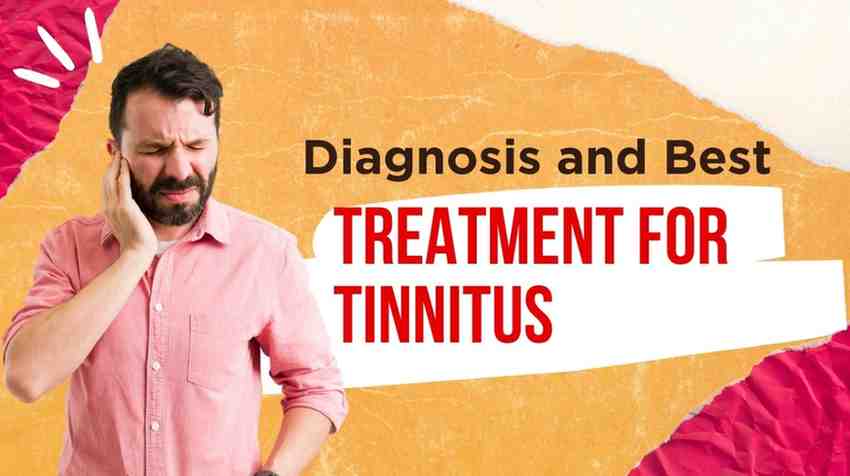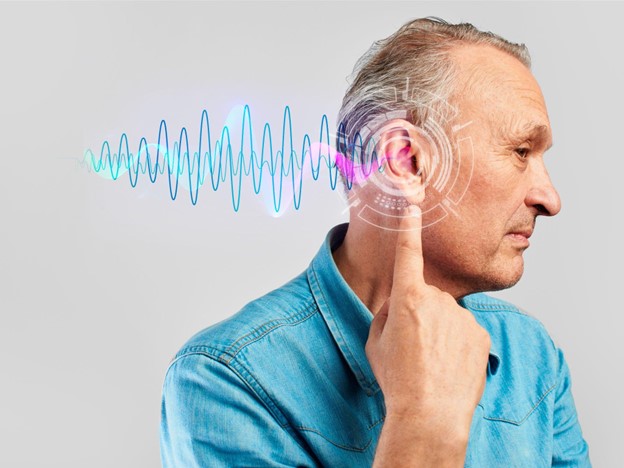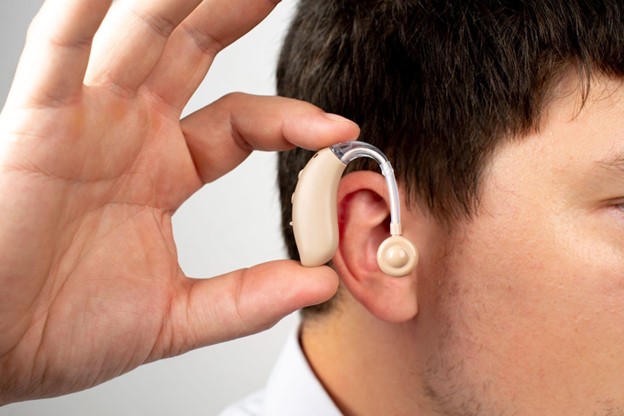Last updated on May 20th, 2025 at 12:06 pm

Tinnitus treatment involves a multifaceted approach aimed at managing the symptoms of persistent ringing, buzzing, or humming in the ears. While there is no universal cure for tinnitus, various strategies can help individuals cope with and alleviate its impact. Medical interventions may include the use of hearing aids for associated hearing loss, sound therapy to mask internal noise, and, in some cases, medications to address emotional distress.
Holistic approaches, such as cognitive behavioural therapy (CBT) and mindfulness techniques, focus on changing thought patterns and reducing stress. Lifestyle adjustments, like maintaining a balanced diet and practising relaxation exercises, can contribute to overall well-being. Emerging technologies and ongoing research into neuromodulation and pharmacotherapy offer promise for future advancements in tinnitus treatment.
Tinnitus Treatment
Tinnitus, often described as a persistent ringing, buzzing, or humming sound in the ears, affects millions of people worldwide. This condition can significantly impact one’s quality of life, leading to stress, anxiety, and sleep disturbances. Tinnitus is not a disease but a symptom of an underlying issue, such as age-related hearing loss, exposure to loud noises, earwax blockage, or even certain medications.

Medical Interventions
- Hearing Aids: For individuals with tinnitus associated with hearing loss, hearing aids can be a game-changer. These devices amplify external sounds, making it easier for the brain to focus on them rather than the internal noise caused by tinnitus.
- Sound Therapy: White noise machines, nature sounds, or specially designed tinnitus masking devices can help individuals habituate to the constant ringing. By introducing pleasant background sounds, the brain can learn to filter out or ignore the tinnitus noise over time.
- Medications: In some cases, medications such as antidepressants or anti-anxiety drugs may be prescribed to alleviate the emotional toll of tinnitus. However, the effectiveness of medications varies from person to person, and potential side effects should be considered.
> Consult a Doctor and Medkart will help you Order Medicines Online
Holistic Approaches
- Cognitive Behavioral Therapy (CBT): CBT can be beneficial in managing the psychological impact of tinnitus. By helping individuals change their thought patterns and reactions to sound, Cognitive Behavioral Therapy can reduce the distress associated with tinnitus.
- Mindfulness and Relaxation Techniques: Stress and anxiety can exacerbate tinnitus symptoms. Mindfulness meditation, yoga, and deep-breathing exercises can promote relaxation and alleviate the emotional burden of tinnitus.
- Dietary Changes: Some individuals report improvements in their tinnitus symptoms by making dietary adjustments. Cutting down on caffeine, alcohol, and salty foods, while ensuring a balanced diet rich in vitamins and minerals, may positively impact tinnitus.
Emerging Technologies
- Neuromodulation: Innovative techniques such as transcranial magnetic stimulation (TMS) and transcranial direct current stimulation (tDCS) are being explored for their potential to modulate the neural activity associated with tinnitus.
- Pharmacotherapy and Clinical Trials: Ongoing research is focused on developing drugs specifically targeting the neural pathways involved in tinnitus. Participation in clinical trials may provide access to cutting-edge treatments.

Tinnitus Home Treatment
Tinnitus home treatment often involves adopting lifestyle changes and implementing simple yet effective strategies to alleviate symptoms. One commonly recommended approach is sound therapy, where individuals use background noise, such as a fan, soothing music, or nature sounds, to mask the persistent ringing in their ears.
Additionally, practising relaxation techniques, such as deep-breathing exercises and mindfulness meditation, can help manage stress and reduce the perceived severity of tinnitus. Maintaining a healthy lifestyle through regular exercise, a balanced diet, and sufficient sleep can contribute to overall well-being and potentially improve tinnitus symptoms. While tinnitus home treatment may not provide a cure, they offer accessible and cost-effective ways for individuals to better cope with the challenges posed by tinnitus within the comfort of their own homes.
Also, Read:
- Normal Heart Rate by Age
- Random Blood Sugar Normal Range
- BP Normal Range for Female
- Normal Blood Sugar Levels Chart
Ayurvedic Treatment For Tinnitus
Ayurvedic treatment for tinnitus is rooted in the ancient holistic healing system of Ayurveda, aiming to restore balance to the body and mind. Ayurveda views tinnitus as a manifestation of an underlying imbalance in the doshas, particularly Vata, and often recommends a combination of dietary modifications, herbal remedies, and lifestyle practices. Medicinal herbs such as Ashwagandha, Brahmi, and Ginkgo Biloba are commonly used to strengthen the nervous system and improve circulation to the ears.
Ayurvedic therapies like Nasya (nasal administration of herbal oils), Shirodhara (pouring of warm oil on the forehead), and Panchakarma (detoxification procedures) may also be recommended to address imbalances and promote overall well-being. Additionally, adhering to a Vata-pacifying diet that includes warm, nourishing foods and avoiding excessive intake of cold or raw foods is often suggested. It’s important for individuals considering Ayurvedic treatment for tinnitus to consult with a qualified Ayurvedic practitioner who can tailor a holistic approach based on their unique constitution and specific imbalances.
Conclusion:
While tinnitus may not have a one-size-fits-all cure, the diverse range of treatment options offers hope for individuals seeking relief. Consulting with healthcare professionals and exploring a combination of medical, holistic, and emerging therapies can help individuals manage their symptoms effectively and enhance their overall quality of life. As research continues, the future holds promise for more advanced and tailored approaches to address the complex nature of tinnitus.
Read: What are Generic Medicines?
FAQs On Tinnitus Treatment
Q1. What is Tinnitus Treatment?
Tinnitus treatment involves managing persistent ear noises like ringing or buzzing. Strategies include sound therapy, medical interventions such as hearing aids, and holistic approaches like mindfulness and relaxation techniques. While there’s no universal cure, personalized combinations of these methods aim to alleviate symptoms and improve overall well-being.
Q2. Can tinnitus be cured?
Currently, there is no universal cure for tinnitus. However, various treatments aim to manage symptoms and improve quality of life.
Q3. What are common tinnitus management strategies?
Common strategies include sound therapy, such as white noise or nature sounds, medical interventions like hearing aids, and holistic approaches like mindfulness and relaxation techniques.
Q4. Is medication effective in treating tinnitus?
Medications may be prescribed to alleviate emotional distress associated with tinnitus, but their effectiveness varies.
Related Links: